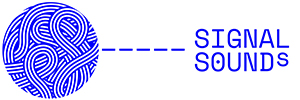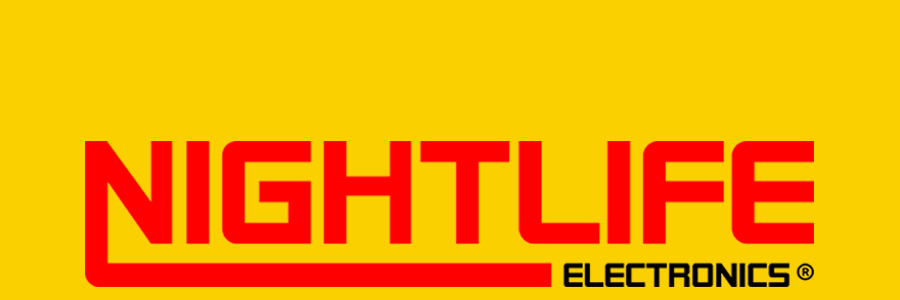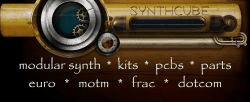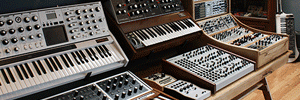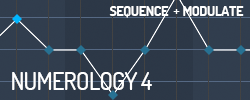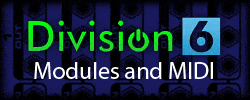
Showing posts sorted by relevance for query Todd Barton 1979. Sort by date Show all posts
Showing posts sorted by relevance for query Todd Barton 1979. Sort by date Show all posts
Wednesday, July 22, 2020
1979 DSD PingPong Mode
Todd Barton
"This is the sixth in a series of demos and tutorials on the new Buchla format 1979 Digital Stereo Delay from
https://1979.ws
Today I look at the Ping Mode with Freeze.
Big thanks to all my patrons that help make these videos possible at https://www.patreon.com/synthtodd"
1979 DSD Overview
"Here is an overview to my six part series on the 1979 Digital Stereo Delay in Buchla format available at https://1979.ws"
Todd Barton 1979 posts
Sunday, July 19, 2020
1979 DSD Mono Sync
Todd Barton
"This is the second in a series of demos and tutorials on the new Buchla format 1979 Digital Stereo Delay from
https://1979.ws
Today I look at synchronized delays in Mono Mode. More to come.
Big thanks to all my patrons that help make these video possible at https://www.patreon.com/synthtodd"
Todd Barton 1979 posts
Wednesday, July 22, 2020
1979 DSD Fdbk mode
Todd Barton
"This is the fifth in a series of demos and tutorials on the new Buchla format 1979 Digital Stereo Delay from
https://1979.ws
Today I look at the Dual Fdbk Mode with Feedback. More to come.
Big thanks to all my patrons that help make these videos possible at https://www.patreon.com/synthtodd'
Todd Barton 1979 posts
Monday, December 09, 2019
1979 DAO overview and demos
Published on Dec 9, 2019 Todd Barton
"My look at 1979 Modular's 4U-format Dual Algorithmic Oscillator based on Mutable Instruments Braids. Plus some demos of how I integrate it with my Buchla systems."
My Patreon: https://www.patreon.com/synthtodd
Todd Barton 1979 posts | 1979 DAO posts
Monday, July 20, 2020
1979 DSD Dual Mode
Todd Barton
"This is the third in a series of demos and tutorials on the new Buchla format 1979 Digital Stereo Delay from
https://1979.ws
Today I look at the Dual Mono Mode. More to come.
Big thanks to all my patrons that help make these videos possible at https://www.patreon.com/synthtodd"
Todd Barton 1979 posts
Tuesday, July 21, 2020
1979 Dual Mode feedback
Todd Barton
"This is the fourth in a series of demos and tutorials on the new Buchla format 1979 Digital Stereo Delay from
https://1979.ws
Today I look at the Dual Mono Mode with Feedback. More to come.
Big thanks to all my patrons that help make these videos possible at https://www.patreon.com/synthtodd"
Todd Barton 1979 posts
Tuesday, April 14, 2020
More 1979 MSV walkthrough
Published on Apr 14, 2020 Todd Barton
"Part 2 of my walkthrough of the Modal Synthesis Voice from 1979 Modular. Looking at Mallet-Timbre, Exciter Input, Resonator Input."
Todd Barton 1979 MSV posts
To continue supporting these videos: https://www.patreon.com/synthtodd
Thursday, December 28, 2006
Todd Barton - Analog Horizonings
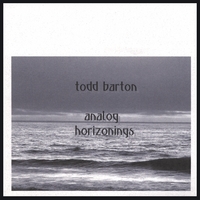
"a very mellow collection of ambient soundscapes featuring the EVI-2000 along with the S-P Synthacon, Buchla, Serge and JP-8"
http://cdbaby.com/cd/toddbarton
"After four decades of exploration Todd Barton is still delving deeply into the ever-expanding frontiers of musical expression: from his DNA derived Genome Music to his innovative scores for plays at the Oregon Shakespeare Festival; from performances of Zen Shakuhachi Meditation Music to avant-garde music for electronic synthesizers and computers; from performing with luminaries of jazz and poetry to lecturing on music and composition from the Middle Ages to the 21st Century.
Todd's music has been heard on NPR’s Morning Edition, Westcoast Live, and the Curve of Wonder.
Since 1979 Todd has been exploring electronic systhesis and computer-based music. His love for vintage analog synthesisers continues to this day.
Over the years Todd has collaborated with a variety of jazz musicians and poets including Anthony Braxton, Zakir Hussein, William Stafford, Ursula K. Le Guin and Lawson Fusao Inada.
analog horizonings: ambient soundscapes for vintage analog synthesizers.
all music composed, produced and performed by todd barton"
Note Todd also goes by the alias vgermuse. You can see previous posts featuring vgermuse here and one more here. You might remember him from the Steiner Parker Synthacon and Buchla 200e demos.
Wednesday, April 15, 2020
1979MSV 259eTWG Autopilot
Published on Apr 15, 2020 Todd Barton
"had to try a krell-like patch with the 1979 Modal Synthesis Voice and the Buchla 259e Twisted Waveform Generator"
https://www.patreon.com/synthtodd
Todd Barton 1979 posts
Tuesday, November 19, 2019
1979 SMP Overview
Published on Nov 19, 2019 Todd Barton
"My initial encounter and overview with 1979's Stereo Microsound Processor (SMP) based on Mutable Instruments Clouds but styled with added features for the Buchla format. A later episode will have some sound demos.
Purchase information: https://1979.ws
A good Clouds tutorial for the curious: [posted here]
Consider joining my Patreon page to support continuing tutorials for Buchla, Serge, Hordijk and some Eurorack:
https://www.patreon.com/synthtodd"
Update: Note 1979 is the brand, not the year. I created a new site label for them. I believe 1979 is Wes Milholen of Grayscale's brand. You can find a 20Objects interview with him here.
The SMP / STEREO MICROSOUND PROCESSOR is currently priced at $850.
"Granular synthesis for 4U systems. Based on Clouds by Mutable Instruments, the SMP is a realtime granular synthesis processor that expands significantly on the original. Dedicated controls for previously hidden functions, additional CV inputs with inverting attenuators, easier access to preset recall and sampling settings, and increased control over output gain make this one of the most full-featured hardware granular processors available. It's a powerful addition to any Buchla-format system, offering a form of digital signal processing not previously available in this format."
LABELS/MORE:
1979,
Buchla,
MATRIXSYNTH Members,
Mutable Instruments,
New,
New Makers,
New Makers in 2019,
New Modules,
New Modules in 2019,
synth tutorials
Wednesday, December 04, 2019
1979 DR Krell
Published on Dec 4, 2019 Todd Barton
"Using a Krell patch to drive the 1979 Digital Resonator -- some fun now! Check my overview video of this module here [1979 Digital Resonator overview] More info and purchase: https://1979.ws
Also check out my Patreon page: https://www.patreon.com/synthtodd"
Friday, April 17, 2020
1979 MSV Feedback Studies
Published on Apr 17, 2020 Todd Barton
"Two studies with feedback patching of the Modal Synthesis Voice by 1979 Modular in Buchla format. Enjoy!
1979 Modular: https://1979.ws
My Patreon: https://www.patreon.com/synthtodd"
Tuesday, July 19, 2022
1979 CMP - Powerful DSP Effects for Buchla Systems
Pitch Shifter test video upload by Todd Barton
"Initial encounter with the 1979 Compact Microsound Processor. Some fun now!! It is using the Pitch Shift/Time Stretcher mode.
My Patreon: https://www.patreon.com/synthtodd"
via 1979
 Powerful DSP effects for Buchla systems.
Powerful DSP effects for Buchla systems.
The CMP is a powerful stereo effects processor which expands significantly on the original Clouds by Mutable Instruments. Dedicated controls for previously hidden functions, additional CV inputs, four memory banks for saving samples, and a digital CV attenuation schema make this one of the most unique audio processing modules in the Buchla ecosystem. Eight DSP modes are available which cover granular synthesis, pitch shifting, glitch-inspired audio looping, and spectral processing along with unique digital reverb and delay effects.
The CMP is a compact version of the Stereo Microsound Processor with the same basic functionality. An upgraded digital brain allows the CMP to support the "Superparasites" firmware which includes eight DSP algorithms. This firmware combines DSP code from the original Clouds by Mutable Instruments, Clouds Parasites by Matthias Puech, and two additional modes by Julius Kammerl. To change the DSP mode, press the TIME switch (upper left) for a few seconds and then press the switch to cycle through the list of algorithms below. The TIME LED will blink slowly to indicate the current algorithm, as shown below. The selection mode will automatically exit after a few seconds.
Mode 1 [●○○○]: Granular Processor
Mode 2 [○●○○]: Pitch Shifter / Time Stretcher
Mode 3 [○○●○]: Looping Delay
Mode 4 [○○○●]: Spectral Processor
Mode 5 [○●●●]: Spatial Reverb
Mode 6 [●○●●]: Resonator
Mode 7 [●●○●]: Beat Repeat / Loop Slicer
Mode 8 [●●●○]: Spectral Clouds
You can find additional details at 1979.
Wednesday, February 01, 2023
Feel Good 1979
video upload by Todd Barton
"What began abstract turn fun when I toggled the start switch on the sequencer. This features the 1979 Modular Digital Resonator.
1979 Modular: https://1979.ws
My Patreon: https://www.patreon.com/synthtodd"
Monday, October 24, 2011
Todd Barton Interviewed on vicmod

Interview on vicmod here.
"Tell us about yourself.
Cut my analog teeth on my friend Doug Leedy’s Buchla Music Easel in the late 70’s. Couldn’t afford a ME so hocked the house and got a Serge Modular Music System in 1979. Remember going to Haight/Ashbury and picking it up from Serge. The only book/manual at the time was Allen Strange’s Electronic Music: Systems, Techniques, and Controls which I ate, drank and slept with..."
Click through above for some Serge & Buchla eye candy.
Todd Barton recently released and all Buchla album here.
Friday, December 02, 2022
below this time does not exist by Todd Barton
https://toddbarton.bandcamp.com/album/below-this-time-does-not-exist
"The title comes from a phrase in one of my favorite books, The Order of Time by Carlo Rovelli. Back in February 2020 while in Italy my daughter and I were fascinated by Rovelli’s poetical unfolding of relational quantum mechanics for the lay person. At that time I selected a few phrases that piqued my imagination and creativity as composition titles for a future album. Coincidentally and spontaneously one day my daughter, Ursula, snapped a photo of me in the Tuscan sunlight which turned out to be quite extraordinary and evocative. We talked about it being the cover for this album. The future has arrived . . . enjoy!
released December 2, 2022
Instruments used:
Buchla Music Easel, Buchla 227e System Interface Module, 1979 Modular Stereo Microsound Processor, Makenoise Erbeverb, Makenoise Mimeophon, Intellijel Planar 2, TC Electronic Ditto X4 Looper, TC Electronics T2 reverb, U & I Software Metasynth.
Influences:
Though their influences may not be apparent, these Elders have guided me endlessly…
Beatriz Ferreyra, Eliane Radigue, Bebe Barron, Roland Kayn, Morton Subotnick, Gordon Mumma, John Cage, David Tudor,
Toru Takemitsu and Witold Lutoslawski."
Thursday, April 09, 2020
Play Date with 1979 MSV
Published on Apr 9, 2020 Todd Barton
"first 30 minutes with the 1979 Modulars Modal Synthesis Voice https://1979.ws which is based on the Mutable Instruments Elements and in Buchla format.
Checkout my Patreon at https://www.patreon.com/synthtodd"
Saturday, July 18, 2020
1979 DSD Mono Mode
Todd Barton
"This will be the first of a series of demos and tutorials on the new Buchla format 1979 Digital Stereo Delay from https://1979.ws
Today I begin with the Mono Mode. More to come.
Big thanks to all my patrons that help make these video possible at https://www.patreon.com/synthtodd"
Monday, March 20, 2023
1979 DSS Modes
video upload by Todd Barton
"Just got this 1979 Modular module, the Dual Sequential Switch and am having a blast! Here's just a simple yet effective fun patch to feature the Mode settings. Enjoy!
My Patreon: https://www.patreon.com/synthtodd"
Bidirectional sequential switches for audio and CV
The DSS is intended as a companion for the Buchla 245/246 sequencers and other "quad" modules in Buchla format such as the 281 and 292. New possibilities for performance and composition arise from the ability to dynamically route multiple sources to multiple destinations without repatching.
BUILD OPTIONS. Choose from one of three build options. See the images above for illustrations of each build type. On the standard build the main I/O uses Tinijax on the top half and banana jacks on the bottom half. Custom builds with all Tinijax or all banana jacks for the main I/O are also available. If you want a custom build, please send an email with your build preference after placing your order. If no preference is stated your module will be supplied as a standard build.
The main I/O is bidirectional, meaning that the module works as a 4:1 multiplexer or a 1:4 demultiplexer. Patch up to four signals to the inputs labeled 1-4 and they will be sequentially routed to the common I/O jack. Alternately, patch one signal source to the I/O jack and it will be sequentially distributed to the 1-4 jacks.
Each half of the module has its own independent loop length (from 1 to 4 steps) and sequencing mode: forwards, backwards, forwards and then backwards (pendulum), or random. The SC (Step Change) output generates a trigger whenever the sequence length is changed, which is useful for synchronizing the upper and lower halves of the module or communicating state changes to other modules. The analog CV addressing input (ADDR) bypasses pulse-based control and allows an external CV source to select which step is active, similar to the "analog" CV input on the Buchla 245/246.
These extensive control and sequencing options make the DSS one of the most fully-featured sequential switches available in any modular format. Every aspect of the switching schema is accessible, facilitating previously inaccessible patching opportunities.
Tech Specs
4:1 or 1:4 sequential switches for audio or CV
Variable sequence length (1-4 steps) with voltage control
Variable switching mode (forward, reverse, pendulum, random) with voltage control
VC step addressing via clock, direct selection, or external 0-10V CV
Extensive pulse I/O for synchronization with external modules
Extra Settings
RESET/TRIG switch toggle. By default, pressing the RESET switch returns the sequencer to step 1, but this switch can also be used as a manual trigger source. Press RESET for 5 seconds to toggle this setting. The SC LED will blink to confirm the change. Now when the switch is pressed the TRIG jack will be pulsed instead. The RESET and TRIG jacks still work independently. Press RESET again for 5 seconds to toggle the switch function back to a manual reset.
Manual step selection. Press the RESET switch and then turn the STEPS knob for manual channel selection. This works like the ADDR CV input but doesn't require external CV. Note that all trigger inputs (RESET, TRIG, and the four SELECT jacks) can still change which channel is active so this feature works best when those inputs are not being used.
Pendulum behavior. Press the RESET switch and then turn the MODE knob to change how the Pendulum mode behaves. There are four possible settings which correlate with the four F/B/P/R labels around the knob.
You can find additional details at https://1979.ws/dual-sequential-switch/
Monday, September 14, 2020
Playing the 1979 SMP
Todd Barton
"Exploring playing/performing the Buchla format Stereo Microsound Processor from 1979 Modular https://1979.ws
Visit my Patreon at https://www.patreon.com/synthtodd"
NEXT PAGE
HOME




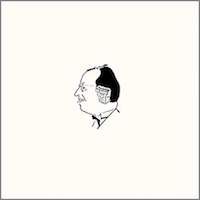
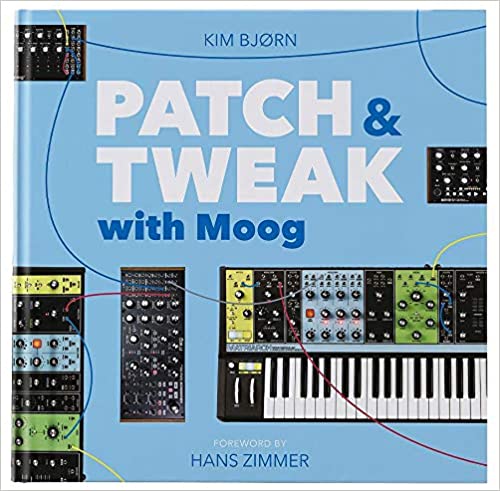






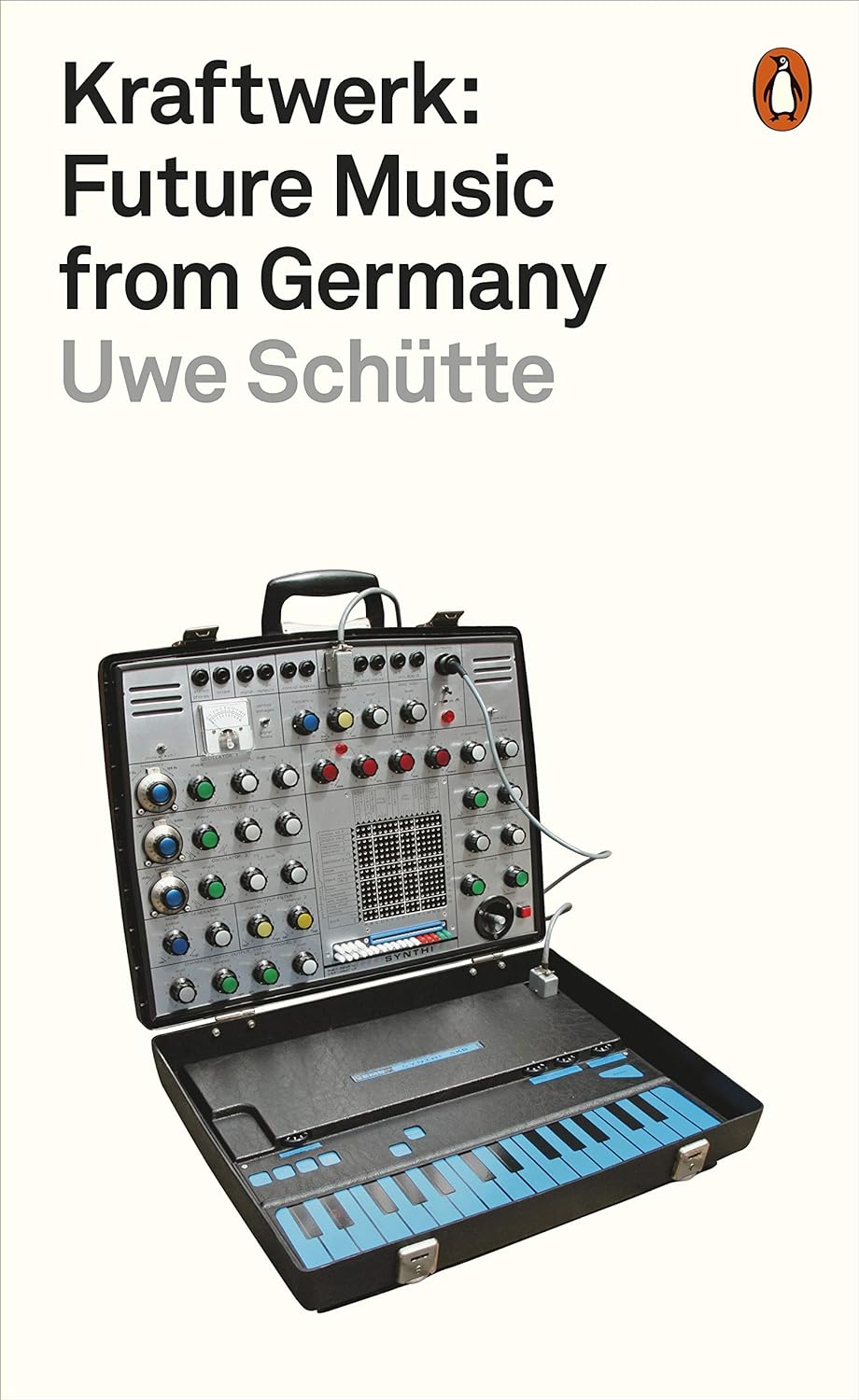
© Matrixsynth - All posts are presented here for informative, historical and educative purposes as applicable within fair use.
MATRIXSYNTH is supported by affiliate links that use cookies to track clickthroughs and sales. See the privacy policy for details.
MATRIXSYNTH - EVERYTHING SYNTH













© Matrixsynth - All posts are presented here for informative, historical and educative purposes as applicable within fair use.
MATRIXSYNTH is supported by affiliate links that use cookies to track clickthroughs and sales. See the privacy policy for details.
MATRIXSYNTH - EVERYTHING SYNTH







